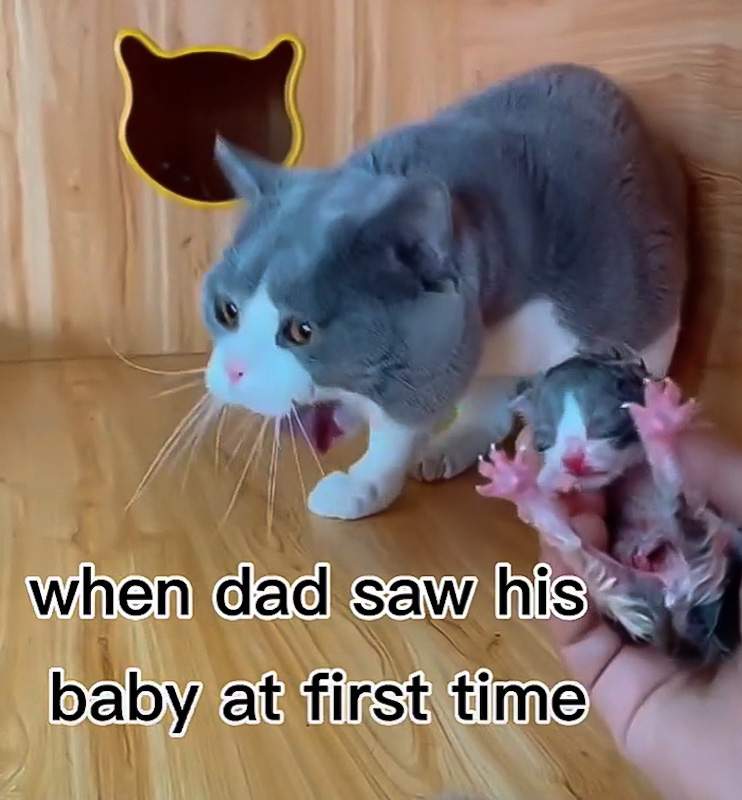There are two important issues concerning domestic cat character: friendliness and socialisation. They do overlap but they are distinct. Whereas socialisation ‘acclimatises’ the kitten to the presence of humans and dampens down a cat’s fear of humans, friendliness can be inherited, and it is a personality trait which makes the kitten/adult bolder and more likely to ‘approach, touch and rub a….person’ according to a study dated Oct. 1995 called: ‘The impact of paternity and early socialisation on the development of cats’ behaviour to people and novel objects’.

The interesting aspect of the study is that they examined the impact of the friendliness of a father on his kittens and how it affected the kitten when they grew up and lived with people.
The conclusion was that “Socialised cats and friendly-fathered cats were not only friendlier to unfamiliar people but less distressed when approached and handled by them”.
There are two elements at play: socialisation which is a necessity for the domestic cat and the genetic influence on character as inherited from the father in this instance.
Fiona Sunquist in her book (with husband Mel) Wild Cats of the World, writes: “Kittens fathered by some males were more friendly than others. Thus, friendliness may be inherited.”
Frankly it would surprise me if this was not the case. It is normal.
But the illustration on this page shows us how abnormal it is for male domestic cat to be involved in raising their ‘kids’.
In that great book I have mentioned above there is nothing about males raising their offspring. The focus is on mothers joining together when feral to raise their young and to fend off marauding males who want to kill offspring in acts of infanticide along the lines of a lion pride. Friendly fathers!? 😒

And in the video on this page, we see a big, solid, male bicolour (blue and white) British Shorthair gagging profusely when presented with his newborn offspring on the death of its mother in ‘childbirth’.
@catskittens66 Single daddy cat has to learn to take care of his baby, poor kitten lost his mom when just given birth him #cutecat #lovecat #kittens #fyp #foryourpages #cats #foryou #pets #petlover #adorablecat ♬ ily (i love you baby) – Surf Mesa
Note: This is an embedded video from another website. Sometimes they are deleted at source, or the video is turned into a link which would stop it working here. I have no control over this.
The owner of the cat/kitten wanted the male to father his kitten, but he shows complete contempt and disinterest and worse. When the kitten is foisted on to the male by the owner, he gags. ‘No way’, he says. ‘Take the little mite away from me’. And earlier the father slapped the kitten as he would an unwelcome stranger.
That’s the mentality of the classic father cat but it is known that under certain agreeable circumstances that male domestic and feral cats raise young. I guess it comes down to circumstance and the character of the male cat.
And it seems they can change their mind as is illustrated in this TikTok story. The big dad starts to father his ‘kid’. But I don’t think it came naturally to him as his first instinct was to slap the kitten and as mentioned gag relentlessly!
Below are some pages on mothering. There is very little on ‘fathering’. As Fiona Sunquists says in respect of feral cat parenting: “As with other felids, females compete for food and safe dens sites to rear young… males compete for access to females”. Wham-bam-thank-you-ma’am.
.

